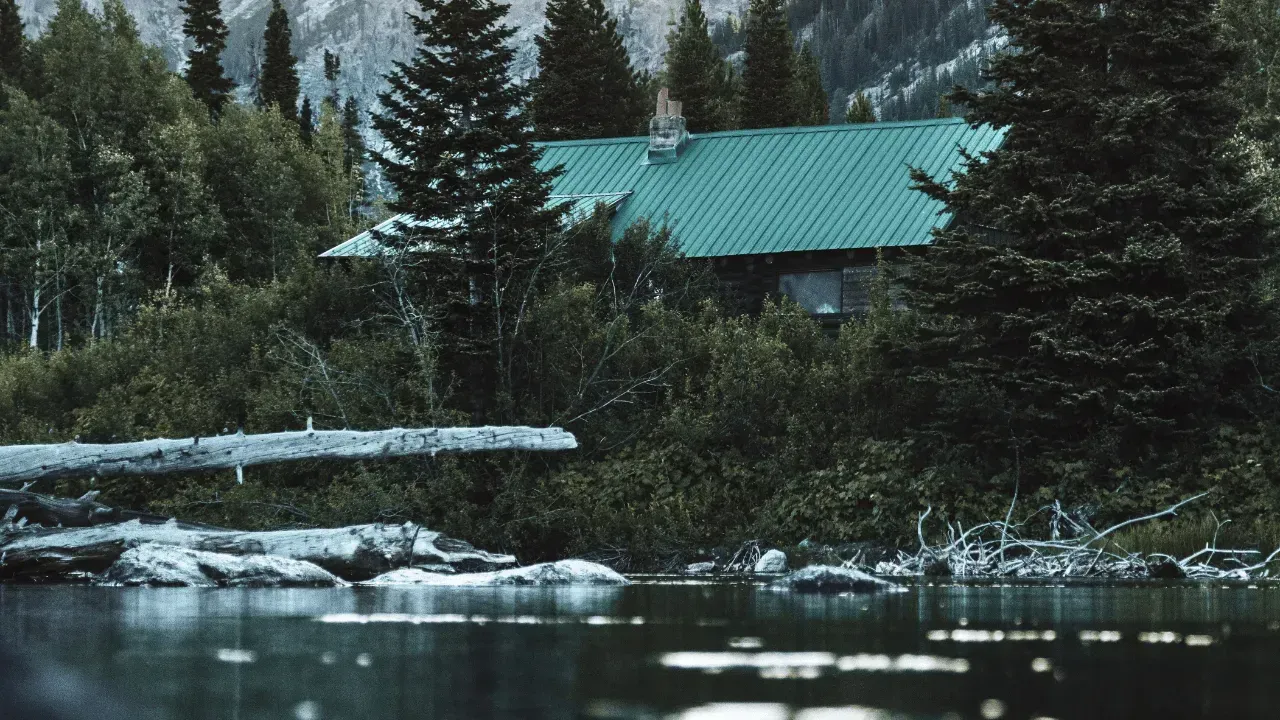Wheat Ridge, CO Home Insurance

8:30am - 5:00pm Mon-Fri
We'll Reply in 15min*
Index
Contact Us
Phone
303-421-5123
Location
9035 Wadsworth Parkway
Suite 2730B
Westminster, CO 80021
Home insurance is a critical aspect of homeownership in Wheat Ridge, CO. Understanding the basics of home insurance is crucial to protect your investment. This article will explore the key features of home insurance in Wheat Ridge, CO, factors influencing home insurance rates, and how to choose the right policy for your needs. Additionally, we will cover some frequently asked questions to help you make informed decisions.
Understanding the Basics of Home Insurance
When it comes to protecting your home and personal belongings, home insurance is an invaluable tool. This type of property insurance provides financial protection against a variety of perils that could potentially damage or destroy your home. From fire and theft to vandalism and natural disasters, home insurance is designed to help cover the repair or replacement costs in the event of a covered peril.
Defining Home Insurance
Home insurance, also known as homeowner's insurance, is a form of property insurance that is specifically designed to protect homeowners from financial losses. It is a contract between the homeowner and the insurance company, where the homeowner pays a premium in exchange for coverage. In the event of a covered peril, the insurance company will provide financial compensation to help the homeowner recover from the damage or loss.
Home insurance typically covers two main areas: the structure of the home and the personal belongings inside. The structure coverage includes the physical structure of the house, as well as any attached structures such as garages or sheds. Personal belongings coverage includes items such as furniture, appliances, clothing, and electronics.
Importance of Home Insurance
For homeowners in Wheat Ridge, CO, home insurance is not just a luxury but a necessity. It provides peace of mind and financial protection against unforeseen circumstances that could result in substantial losses. One of the primary benefits of home insurance is its ability to safeguard against natural disasters. Colorado is prone to severe weather events such as hailstorms, wildfires, and heavy snowfall. Without proper insurance coverage, homeowners could face significant financial burdens in the aftermath of such events.
In addition to protecting against natural disasters, home insurance also provides liability coverage. This means that if someone is injured on your property and files a lawsuit against you, your insurance policy can help cover the legal fees and any damages awarded. Liability coverage is especially important for homeowners, as accidents can happen at any time, and the resulting legal expenses can be overwhelming.
Furthermore, home insurance offers coverage for additional living expenses. In the event that your home becomes uninhabitable due to a covered peril, your insurance policy can help cover the costs of temporary housing, meals, and other necessary expenses. This can provide much-needed relief during a challenging time, allowing you to focus on rebuilding and recovering.
It's important to note that home insurance policies can vary in terms of coverage limits and exclusions. It's crucial for homeowners to carefully review their policy and understand what is covered and what is not. Additionally, homeowners should regularly reassess their insurance needs and update their policy accordingly to ensure adequate coverage.
In conclusion, home insurance is an essential tool for homeowners in Wheat Ridge, CO, and beyond. It provides financial protection and peace of mind in the face of potential perils. By understanding the basics of home insurance and selecting the right policy, homeowners can protect their most valuable asset and ensure a secure future.
Key Features of Home Insurance in Wheat Ridge, CO
When it comes to home insurance in Wheat Ridge, CO, there are several key features that you should be aware of. Understanding these features will help you make informed decisions when choosing a policy that suits your needs.
Coverage Options
Home insurance offers various coverage options to cater to different needs. Dwelling coverage is one of the most important aspects of a home insurance policy. It protects the structure of your home, including the walls, roof, and foundation, from covered perils such as fire, vandalism, and wind damage.
Personal property coverage is another essential component of home insurance. This coverage protects your belongings, such as furniture, appliances, electronics, and clothing, from covered perils both inside and outside your home. It provides financial compensation if your personal belongings are damaged, destroyed, or stolen.
In addition to dwelling and personal property coverage, home insurance also includes liability coverage. This coverage safeguards you against lawsuits resulting from injuries or property damage caused by you or your family members. It helps cover legal expenses, medical bills, and property repair costs if you are held responsible for an accident or incident that occurs on your property.
Note: It is important to carefully review the coverage limits and exclusions in your policy to ensure adequate protection. Understanding what is covered and what is not will help you avoid any surprises in the event of a claim.
Policy Limitations
While home insurance provides valuable coverage, it's important to understand the limitations of your policy. Certain perils, such as floods or earthquakes, may require separate coverage. These natural disasters are typically not covered under a standard home insurance policy, so it's crucial to assess the risk in your area and consider purchasing additional coverage if necessary.
Additionally, some personal belongings may have coverage limitations. Items such as expensive jewelry, artwork, or collectibles may have a limited coverage amount in your policy. If the value of these items exceeds the coverage limit, you may need to purchase additional endorsements or a separate policy to ensure their full protection.
It's also worth noting that home insurance policies often have deductibles, which are the out-of-pocket expenses you must pay before your insurance coverage kicks in. Understanding your deductible amount and how it affects your claims is important when evaluating the overall cost and value of your policy.
By understanding the coverage options and limitations of your home insurance policy in Wheat Ridge, CO, you can make informed decisions to protect your home, belongings, and finances. It's always a good idea to consult with an insurance professional who can guide you through the process and help you choose the right coverage for your specific needs.
Factors Influencing Home Insurance Rates in Wheat Ridge, CO
Property Value and Location
The value and location of your home play a significant role in determining your home insurance rates. Factors such as the cost to rebuild your home, the crime rate in your area, and proximity to fire stations can impact the premium. Homes located in high-risk areas, such as flood-prone regions, may also attract higher rates.
When it comes to property value, insurance companies consider the replacement cost of your home. This includes the cost of materials and labor required to rebuild your home from scratch. The higher the replacement cost, the higher your insurance premium is likely to be. Additionally, the location of your home can affect the rates. If you live in an area with a high crime rate, insurance companies may perceive a greater risk of theft or vandalism, resulting in higher premiums.
Proximity to fire stations is another important factor. If your home is located near a fire station, it can be seen as a lower risk since firefighters can respond quickly in case of a fire. On the other hand, if your home is far from a fire station, it may take longer for help to arrive, increasing the potential damage and therefore, the insurance premium.
Furthermore, homes located in flood-prone regions may face higher insurance rates due to the increased risk of water damage. Insurance companies consider the likelihood of flooding and the potential cost of repairs when determining the premium for homes in these areas.
Home Age and Construction Type
The age and construction type of your home are key factors in calculating home insurance rates. Older homes may have outdated electrical systems or plumbing, increasing the risk of damage. Insurance companies take into account the age of your home and the potential need for repairs or replacements when determining your premium.
Similarly, the construction type of your home can affect insurance rates. Homes constructed with fire-resistant materials, such as brick or concrete, are generally considered less risky. These materials are less likely to catch fire and can help contain the spread of flames, reducing the potential damage. As a result, homes built with fire-resistant materials often attract lower insurance premiums.
It's important to note that insurance companies may also consider the overall condition of your home. If your home is well-maintained and in good condition, it may be seen as less risky, potentially leading to lower insurance rates.
Tip: Updating your home's systems and opting for safety features, such as smoke detectors or security systems, may lead to discounts on your insurance premium. Insurance companies often offer discounts for homeowners who take proactive measures to reduce the risk of damage or loss.
How to Choose the Right Home Insurance Policy
Choosing the right home insurance policy is a crucial step in protecting your investment and ensuring peace of mind. Whether you live in Wheat Ridge, CO or any other location, it's important to carefully evaluate your specific needs and consider various factors before making a decision. Here are some key steps to help you in the process:
Evaluating Your Home Insurance Needs
Before you start comparing insurance providers, take the time to assess your specific needs. Consider the value of your home and possessions, as well as your desired level of coverage. Think about potential risks in your area, such as natural disasters or high crime rates, and determine if additional coverage, such as flood insurance or extra liability protection, is necessary.
It's also important to consider any unique features of your home that may require special coverage, such as a swimming pool, detached structures, or valuable artwork. By thoroughly evaluating your needs, you can ensure that you choose a policy that provides adequate protection for your specific situation.
Comparing Insurance Providers
Once you have a clear understanding of your needs, it's time to start comparing insurance providers. While price is an important factor, it shouldn't be the sole determining factor in your decision. Take the time to research and compare offerings from different companies, considering not only the cost but also the reputation, claims process, customer service, and coverage options offered by each provider.
Reading online reviews and seeking recommendations from friends, family, or neighbors who have had experience with different insurance companies can also provide valuable insights. Look for providers that have a strong financial standing and a history of reliable customer service. A company that is responsive and efficient in handling claims can make a significant difference in your overall experience.
Additionally, consider the coverage options offered by each provider. Some companies may offer additional benefits or discounts for bundling your home insurance with other policies, such as auto or umbrella insurance. Take the time to understand the details of each policy and ensure that it aligns with your specific needs and preferences.
By following these steps and conducting thorough research, you can make an informed decision when choosing a home insurance policy. Remember, the right policy is the one that provides adequate coverage for your needs and offers reliable support when you need it the most.
Frequently Asked Questions about Home Insurance in Wheat Ridge, CO
What Does Home Insurance Typically Cover?
Home insurance typically covers damage caused by perils such as fire, theft, vandalism, and windstorms. It includes dwelling coverage, personal property coverage, and liability protection. However, coverage can vary, so it's crucial to carefully review your policy to understand the specific details.
How Much Home Insurance Do I Need?
The amount of home insurance you need depends on various factors, including the value of your home, possessions, and your desired level of protection. A professional appraisal or consultation with an insurance agent can help determine the adequate coverage for your specific circumstances.
By understanding the basics of home insurance, exploring the key features, considering factors that influence rates, and knowing how to choose the right policy, you can protect your home and belongings effectively. Remember to review your policy periodically and make adjustments as necessary to ensure continued adequate coverage. Home insurance offers the peace of mind you need to enjoy your Wheat Ridge, CO, home without unnecessary worries.




